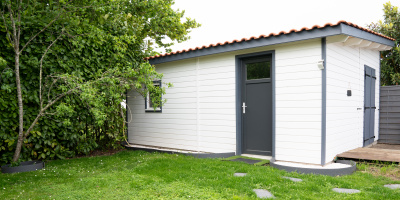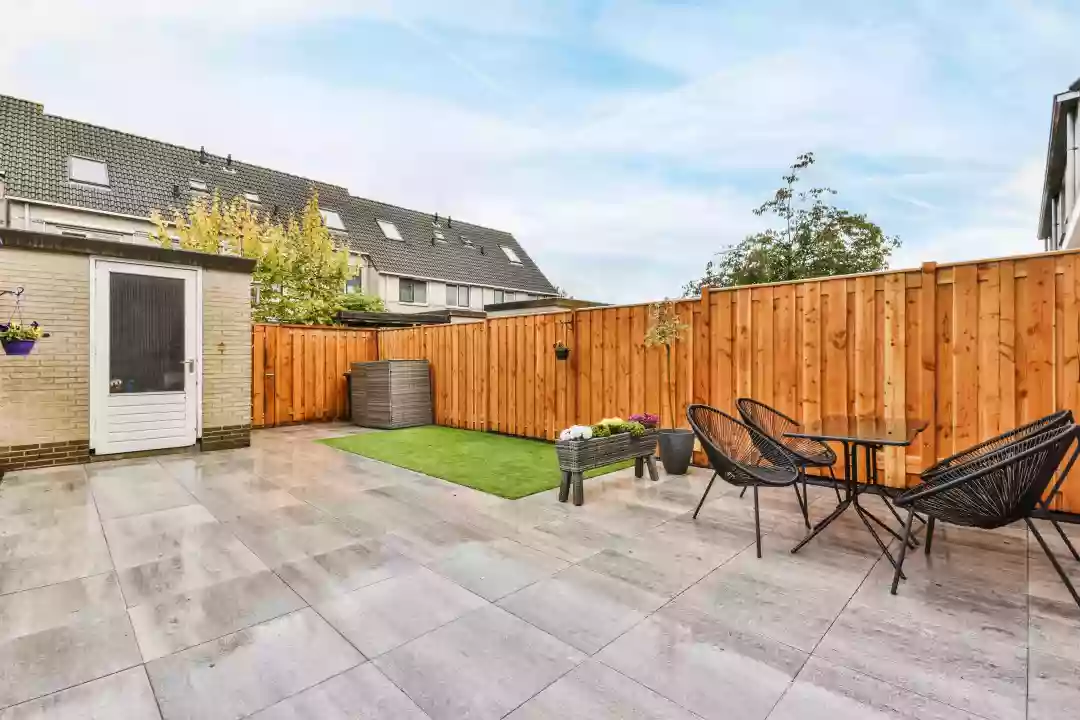Metal Sheds
Metal sheds are among the most popular choices for those who want a robust structure that won't require much maintenance. The steel or aluminium frames are strong and resistant to damage, making them ideal for areas where extreme weather conditions are frequent. Metal sheds are usually more expensive than other options, but they offer excellent security and durability. They come in a range of sizes and styles, from small garden sheds to large workshops perfect for home improvement projects.
The main benefits of metal sheds are that they're easy to assemble, durable, and can be painted to match the colour scheme of your outdoor space. Metal sheds come with a variety of features including sliding doors, adjustable shelves, and vents to allow airflow and prevent condensation. Some metal sheds are even designed to blend seamlessly into your garden and feature attractive cladding.
Whilst metal sheds come with several advantages, one disadvantage is that they can be prone to rusting if not treated and maintained regularly.
Wooden Sheds
Wooden sheds are another popular choice due to their traditional look and feel. Available in a range of sizes and styles, wooden sheds offer a versatile storage solution for any garden. The timber is often pressure treated, meaning it is pre-treated with preservatives to make it more durable and weather-resistant. This protects the wood from rot, insects, and extreme weather conditions.
Wooden sheds come in a range of finishes and you can choose to paint them in a colour that suits your outdoor space. They also give you the option of fitting your own custom features such as windows and shelving. They provide excellent insulation, making them ideal for use as a workshop or for storing items that need to be kept at a consistent temperature.
Unfortunately, wooden sheds aren't as secure as metal sheds and require regular maintenance to keep them in top condition. They may be vulnerable to decay and require repainting every couple of years.

Need assistance finding garden sheds and buildings near you?
Get a QuotePlastic Sheds
Plastic sheds are a great alternative to metal and wooden sheds, offering a lightweight and low-maintenance solution. Plastic sheds come in a range of sizes and styles and they don't require any painting or staining. The majority are made from weather-resistant polypropylene, which means they won't corrode, rot, or suffer from insect damage.
Plastic sheds are easy to move and can be assembled by one person without any tools. They come in both lockable and non-lockable versions, so you can choose the level of security that is right for your needs. Many plastic sheds also come with useful features such as built-in shelving and adjustable venting.
The main downside of plastic sheds is that they aren't as durable or secure as metal or wooden sheds. They also tend to be less aesthetically pleasing than the other two materials.
Types of Shed Roofs
When it comes to choosing the right type of shed roof, there are several options available. The most popular choices are apex roofs and pent roofs, with each having its own benefits. Apex roofs are sloping on all four sides and are typically constructed from sheet metal or asphalt. They are easy to fit and are great for areas where rainfall is frequent. Pent roofs have a single slope, which allows rainwater to run off quickly and makes them great for windy areas.
Flat roofs are another option, although they are less suitable for areas with frequent rain or high winds. These roofs are often cost-effective and relatively easy to maintain. Gambrel and gable roofs are more visually appealing, but also more expensive and complicated to install.
Types of Shed Bases
Once you've decided on the type of shed roof, it's important to think about the most suitable type of shed base. There are three main types of shed bases: concrete slabs, timber frames, and plastic grids. Concrete slabs are the most common, offering a solid foundation for your shed and protecting it from water damage. They are easy to install and long-lasting, but they can be expensive and labour-intensive to lay.
Timber frames are a cheaper alternative to concrete slabs, but they don’t offer as much protection from moisture. They are easy to build and make for an effective foundation, as long as they sit on a flat surface. Plastic grids are a popular choice as they are quick and easy to install. They also provide drainage, meaning you don't need to worry about water seeping through the bottom of the shed.
Making the right choice when it comes to the type of shed material, roof, and base can be a difficult task. But by considering your budget, environment, and security needs, you can make an informed decision and choose the right type of shed for you.
In this article:
